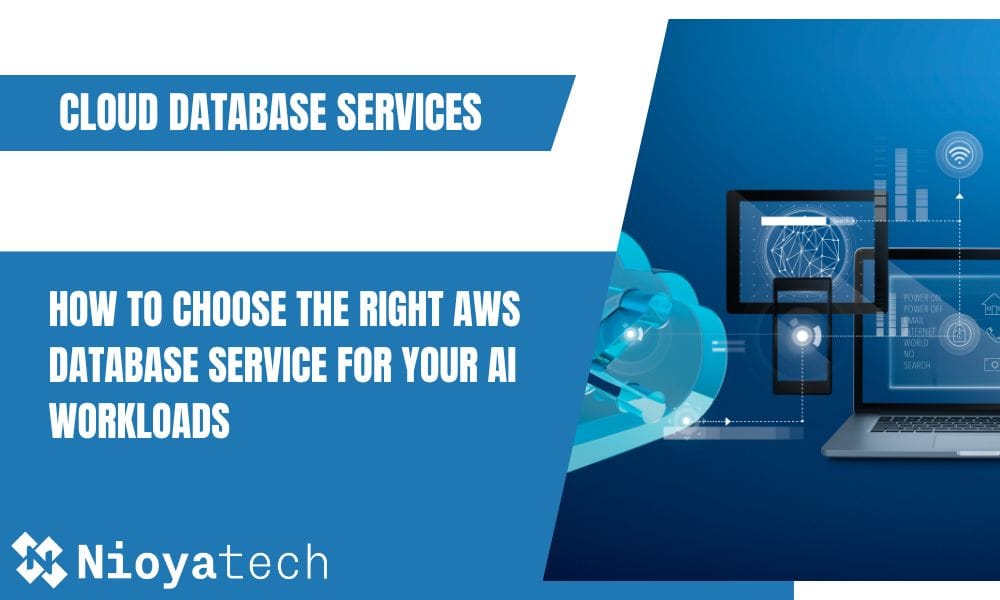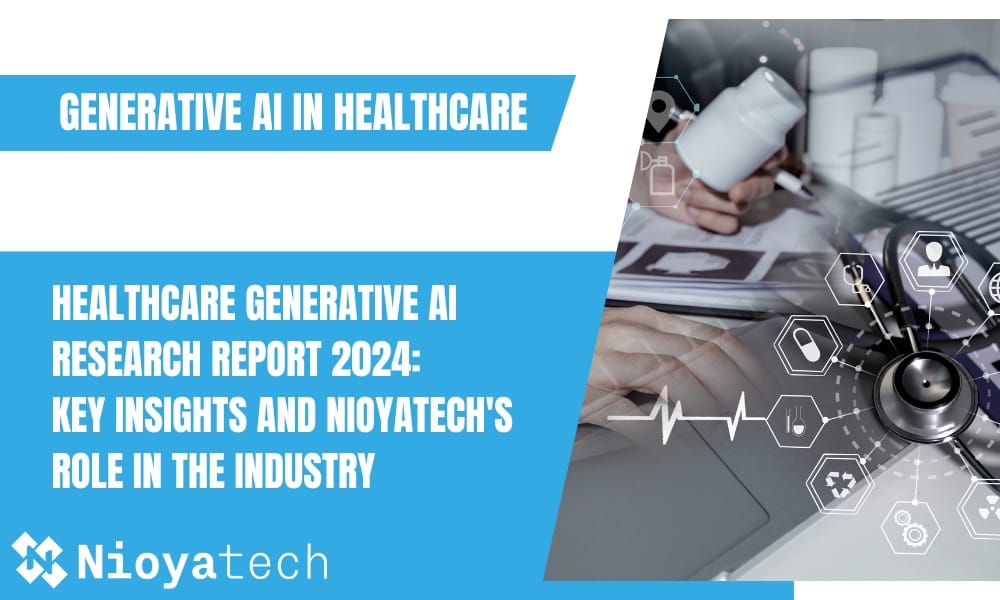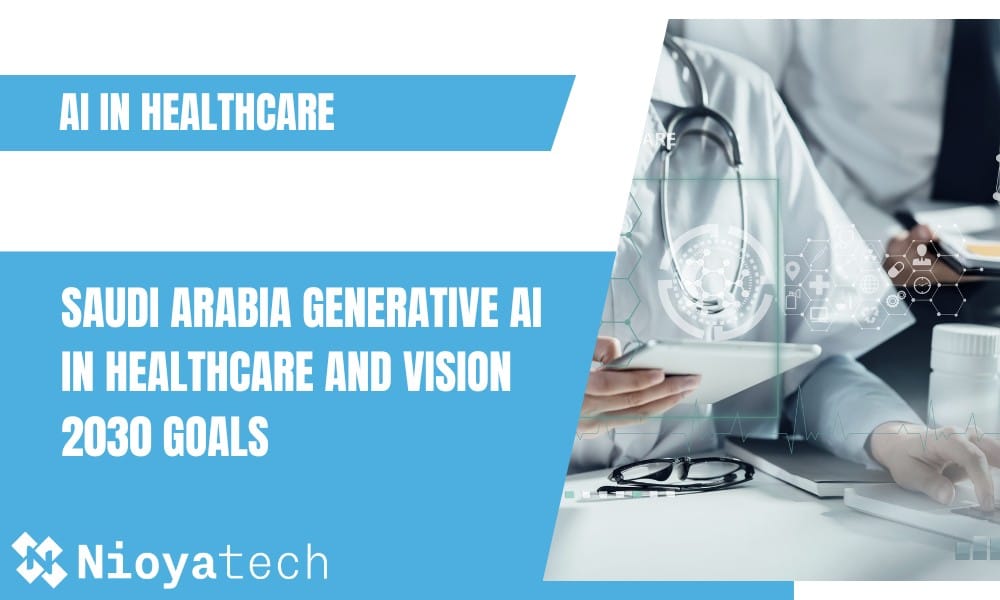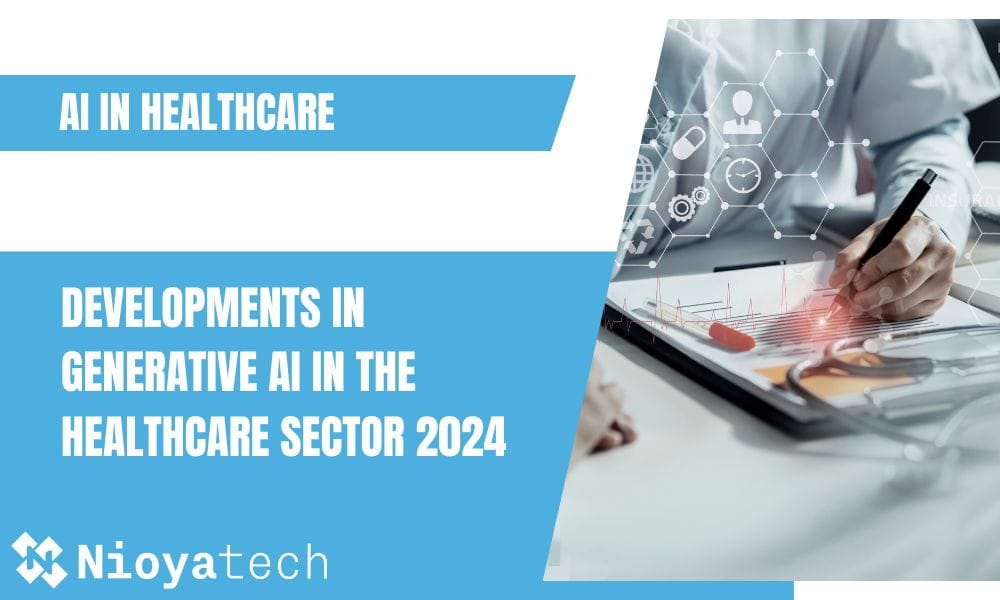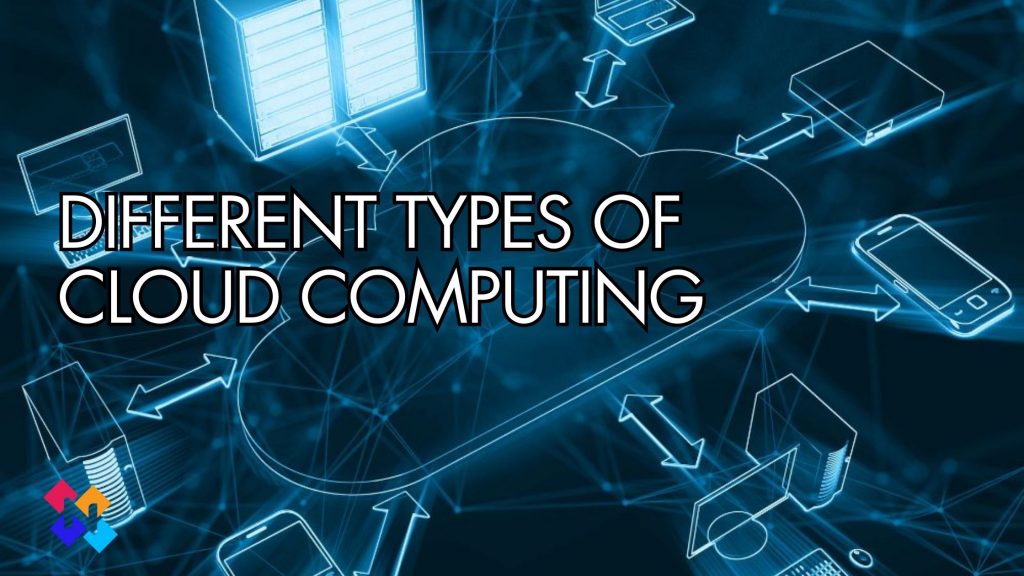Generative AI in healthcare is driving a technological revolution, transforming patient care and advancing medical innovations. Enabling this is a niche within machine learning wherein new data is generated by learning patterns from already existing datasets, hence creating synthetic data and simulating medical scenarios.
The face of healthcare diagnostics, drug discovery, personalized treatment, and clinical documentation will be revolutionized in healthcare as AI gears towards quicker and more accurate decision-making processes. With the advancement and increasing use of AI technology within the medical field, it should be an inevitable tool of shaping the future within healthcare.
This article discusses in detail the fast and enormous progress that generative AI has achieved across healthcare, highlighting how such progressive technologies will improve current practices for healthcare in 2024. Additionally, this paper will outline new market trends and key innovations in the same domain.
Understanding Generative AI and Its Impact on Healthcare Applications
Generative AI is a powerful subclass of machine learning developed to generate new data samples that are similar in characteristics to the original training data. Apart from traditional machine learning models, which often deal with problems of classification or prediction, generative AI creates new data with a structure, distribution, and features similar to those of the input data.
Defining Generative AI and Its Applications
These features enable the synthesis of entirely new data sets, where the generation of synthetic data or images can provide significant benefits.In this way, Generative AI in healthcare supports the creation of realistic patient data for training and testing machine learning models, all while ensuring patient privacy.
In medical research, these models can generate useful new data by mimicking the underlying distribution and properties of the original data. Consequently, AI algorithms in healthcare play a crucial role in processing vast amounts of medical data and aiding clinical decision-making. These algorithms are capable of analyzing medical images, predicting patient outcomes, and assisting in disease diagnosis by learning from historical data.
Importance of Generative AI in Medical Data
The ability of generative AI in healthcare to identify trends, handle vast medical data, and support clinical decision-making is transforming healthcare, therefore enabling more accurate diagnosis and improving patient outcomes.As this technology progresses, its influence on the future of healthcare will become increasingly pivotal, offering solutions that enhance efficiency and accuracy in medical practice.
Applications of Generative AI in Healthcare
Personalized medicine, medical imaging, the discovery of novel medications, and health administration are just some of the areas that are being transformed by generative AI in the healthcare sector. Below, we have highlighted the key use cases of generative AI in healthcare:
Synthetic Data Generation and Data Augmentation
Drug Development and Molecular Synthesis
Diagnosis and Medical Imaging
Clinical Documentation and Healthcare Administration
Personalized Medicine and Treatment Planning
Medical Education and Patient Education
Synthetic Data Generation and Data Augmentation
Applications of generative AI models, such as GANs, have lately become very important for synthetic data generation in order to balance access to valuable healthcare data while protecting patient privacy. Such models can generate anonymized patient data in support of a variety of research, training, and testing needs. Synthetic data can generally enhance the accuracy and robustness of machine learning models by filling the gaps where real-world patient data is limited or restricted due to privacy concerns. Generative AI enables the development of sophisticated healthcare solutions today: generating simulated electronic health records and medical images without compromising patient confidentiality.
Drug Discovery and Molecular Synthesis
As of 2024, generative AI in healthcare models will change the face of drug discovery. New molecules, proteins, and nucleic acid sequences will be designed by these models. Recent models explore chemical structures and emulate a range of variations to suggest potential candidates for drug development at much higher speeds than previously possible. In ways that streamline the process of developing new drugs, predict efficacy, and ensure safety, generative AI does its thing and saves time and cost. Moreover, AI models can identify biological processes associated with various diseases that provide valuable targeting information for new medicinal agents in the advance of treatments.
Medical Diagnosis and Imaging
Generative AI is really upping the game in medical imaging, where synthesis or generation of images assists in image-based diagnosis. GANs are being used for reconstructed images, segmentation, and classification—all providing doctors the saddle to detect diseases with more accuracy. This also replenishes advanced CAD systems, represented by large language models like GPT-4, capable of summarizing and interpreting complex medical data. These AI-assisted medical imagining innovations will enhance the diagnostic possibilities for life-affecting conditions like cancer, heart diseases, and neurological disorders.
Clinical Documentation and Healthcare Administration
Generative AI in models—from GPT-4 and PALM-2 to others—are reducing the administrative burden in health care. This kind of AI automates clinical documentation by summarizing patient data across EHRs and ultimately improves communication for the providers with the patients. This generative AI will only automate the routine tasks: progress notes, discharge summaries, appointment scheduling, and other documentation tasks, enabling healthcare professionals to spend more time caring for patients. In addition, these models reduce the rate of medical errors, since valuable information about the patients’ health will be captured and reviewed with a high degree of accuracy.
Personalized Medicine and Treatment Plans
It will thus be able to transform personalized medicine in ways that include analyzing patients’ genetic information, their way of life, and medical history. AI models eventually come up with treatment plans grounded on unique patient needs and predict how a particular patient is likely to respond to a certain therapy. Treatment then becomes far more effective, with results optimized for the patient. In 2024, AI-driven tools will also simulate patient responses to medications in order to make treatments tailored for the individual patient highly effective.
Medical Education and Patient Education
Generative AI applications in healthcare are valuable in both medical education itself and in patient education. An AI model could generate virtual cases availing medical students with a variety of patients to practice in a controlled environment safely. It will also help generative AI create personalized educational content and develop more engaging, interactive lessons among patients, making huge strides in promoting health literacy among patients regarding their conditions and treatments. Furthermore, generative AI is multilingual; this can be useful in preparing healthcare information for a diverse patient population.
Key Advancements in Generative AI in Healthcare 2024
By 2024, Generative AI has already changed the healthcare landscape, reshaping the way patient data is generated, analyzed, and utilized. Major powers are embedded in the generation of synthetic data, personalization of treatment, automation of specific administrative tasks, and big improvements in diagnostic accuracy. Besides, generative AI in healthcare continues to play a very important role in reducing costs by facilitating easier and more efficient access to medical services.
Medical Image Synthesis Using Advanced Generative Models
Enormous development concerning Generative Adversarial Networks and Variational Autoencoders has been seen within medical image synthesis in 2024. AI-driven tools use these techniques to generate high-quality synthetic medical images, making diagnoses for cancer, heart diseases, and other conditions more accurate for the radiologist. Integrating AI-generated imaging into diagnostic workflows can help health care providers minimize diagnostic errors and enable overall higher accuracy.
Generative AI-Powered Drug Discovery Chatbots
Perhaps one of the biggest innovations in 2024 has been in the development of AI-powered drug development chatbots. These are now widely revolutionizing the pharmaceutical industry and fast-tracking its process for drug development. They hasten the development of new drugs by analyzing chemical structures and generating new molecules, hence playing a critical role in the fight against emerging diseases and refining prevailing treatments. Such application of AI allows much quicker and more cost-effective solutions to drug development.
AI-powered Patient Care
The introduction of real-time AI-driven chatbots in healthcare systems is the second big achievement this year. Generative AI models, improving upon the prototypes of ChatGPT, presently assist a health professional in interacting with patients in real time. These chatbots now can answer patient questions, bring insight into diagnosis, summarize records, and support follow-up care. Synthesizing large volumes of patient data in real time, these tools ease the administrative burden and improve the quality of patient care.
Artificial Intelligence-Generated Medical Documentation
In 2024, AI-powered medical scribing tools significantly reduced the paper burden on healthcare providers. Solutions such as Augmedix’s app, which was deployed by HCA Healthcare, use AI to automatically generate medical notes in real time during physician-patient conversations. These are reviewed and finalized securely to become part of EHR, thereby freeing doctors to spend more hours treating patients rather than handling documentation duties. This innovation not only quickens the process but also improves the quality of medical record keeping.
Future Outlook for Generative AI in Healthcare
The rapid advancements and growing adoption of generative AI are changing healthcare operations. Medical AI advancements offer scalable solutions that address both administrative and clinical challenges. As healthcare providers increasingly turn to AI-driven patient care technologies, the sector is witnessing significant market growth.
Healthcare Generative AI Market Size
In 2023, the U.S. healthcare generative AI market reached an estimated value of USD 518.4 million and is projected to grow at a CAGR of 36.4% from 2024 to 2030. This growth is driven by the adoption of artificial intelligence technologies that enable more efficient healthcare solutions. Generative AI is at the forefront of this transformation. AI provides healthcare providers with data-driven insights that enable them to reduce costs.
Key U.S.Healthcare Generative AI Companies
Several top firms are driving the use of generative AI in healthcare, with each introducing novel solutions to improve patient care and operations. Microsoft is the leading provider of voice recognition and language comprehension tools, as well as models, SDKs, and APIs. On the other side, IBM Watson Health focuses on enhancing patient treatment results using AI-powered data analysis, whereas OpenAI improves clinical healthcare big data and machine learning solutions.
Nioyatech is one of the leading healthcare generative artificial intelligence companies in the USA, driving innovation and advancement in the healthcare sector. Nioyatech helps healthcare providers optimize processes, increase productivity, and improve patient outcomes by providing cutting-edge services in AI-powered data analytics, machine learning and deep learning consultancy, and cloud-based AI operations. Nioyatech’s breakthrough AI technologies are transforming healthcare into a more efficient, data-driven, and patient-centric sector.
Conclusion
As Nioyatech continues to push the boundaries of healthcare AI, we remain committed to supporting the industry with cutting-edge generative AI tools. Our mission is to provide healthcare providers with the insights and technologies they need to deliver more personalized, efficient, and accurate care, while also contributing to the ongoing growth of the healthcare generative AI market.

